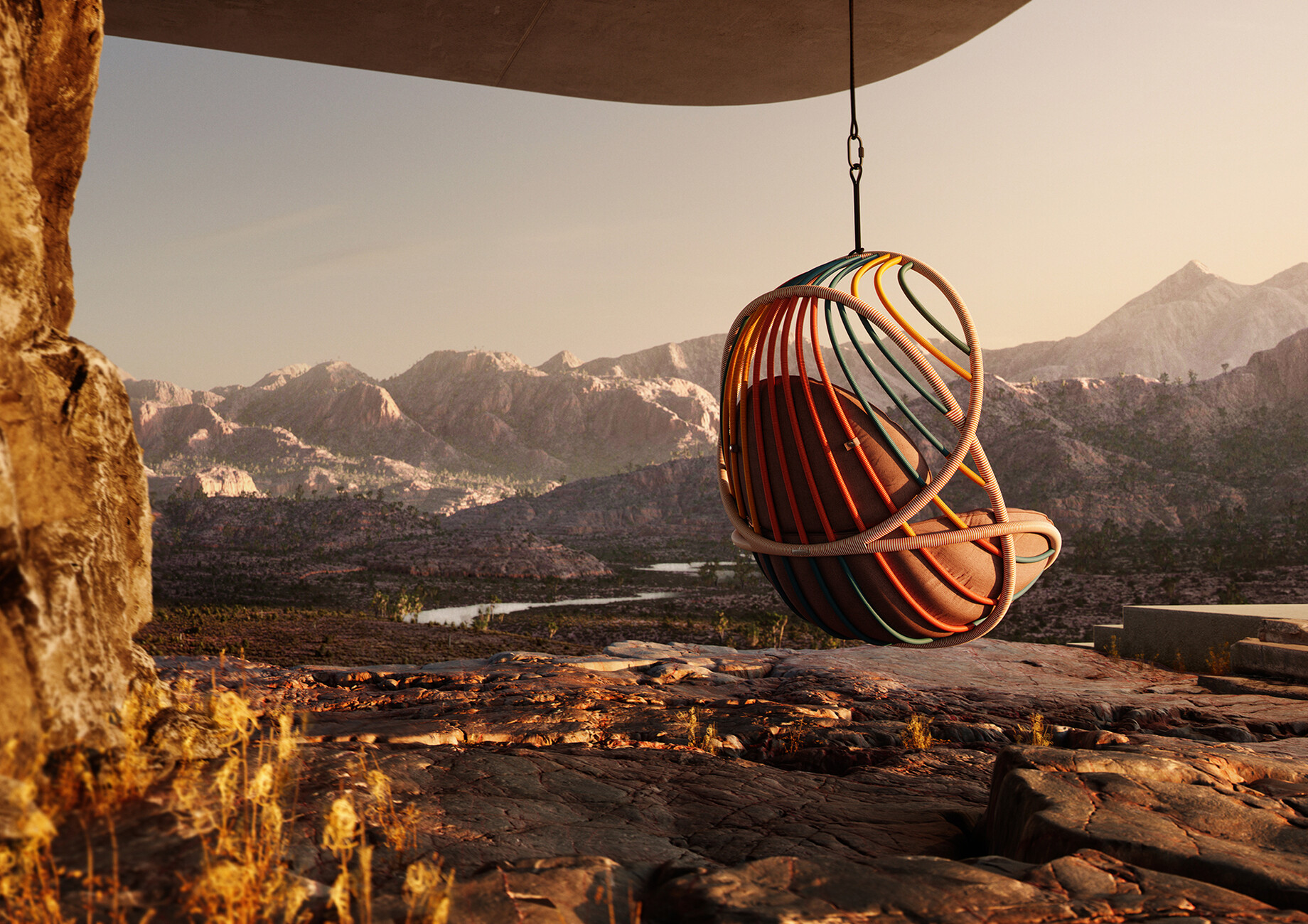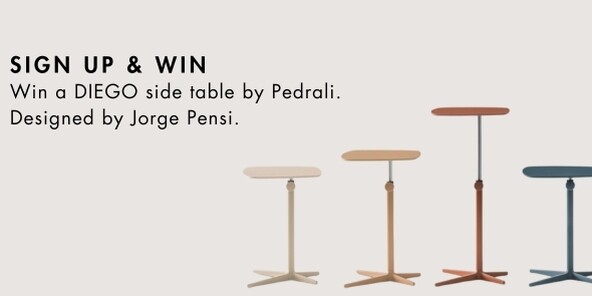Swinging freely
Anna Moldenhauer: Stephen, how did your cooperation with Dedon come about?
Stephen Burks: I first encountered the Dedon company back in 2011 during a meeting at Salone del Mobile in Milan. At the time my works were on display as part of the "Man Made" exhibition in Studio Museum in Harlem as a means of exploring the global economy of artisanal crafts. Dedon textiles are handmade in a small workshop in the Philippines. That really surprised me given the perfection of the finishing. In other words, it was essentially an immediate meeting of minds.
What fascinates you about exploring international artisanal traditions?
Stephen Burks: I don’t think we can view design as a solely Western matter. As part of their tradition cultures around the world create design and artisanship plays a decisive role. I’m looking for ways of observing the system from an independent perspective and interacting with it. The question I ask myself is how we can with the help of industry transfer these traditions which are so worthy of being protected into a viable future.
In your "KIDA" hanging lounge chair the Dedon fibers are wound around the structure rather than being woven. What made you decide to do it like this?
Stephen Burks: The briefing by Dedon only specified that I think about a swinging chair; I was allowed a free hand as regards the rest of the design. Having such great scope for creative experiments is a real gift as it meant I was free for the first time not to weave the soft Dedon fiber "touch" around the structure but to wind it. The idea was to create a hanging chair that seems as light and free as a breeze and using this kind of fiber meant I was able to open up the design.
How am I to understand the collaboration between you and Dedon on "KIDA"?
Stephen Burks: I am strongly influenced by encounters and in my collaboration for "KIDA" I entered the Dedon factory with a handful of sketches to look at the structure and the fibers, to see the colors first hand. That was decisive. Our collaboration is like a workshop and every time I learn something new – be it the case of "KIDA" or previous developments such as the lounge elements "DALA" or the collection "AHNDA" with armchair, high-back wing chair, sofa, stool and coffee table. The open process and the joint work with the team at Dedon also informs the result.
Apart from the neutral color versions there is also a multi-color model, “glow touch". What made you decide on that?
Stephen Burks: I feel very attracted by colors because they help us to invigorate ourselves and our environment. Furniture is also supposed to be fun, to make people happy. This concept can be transported well with the help of color.
You are an industrial designer and architect. To what extent does your knowledge of architecture influence your designs?
Stephen Burks: Architecture has a very strong influence on me. What I have adopted from my know-how for my present work is the idea of logic, of being able to recognize how a building is organized via its structure. I am especially fascinated by the objects and buildings designed by the Bauhaus and Modernism. Products that we don’t understand keep us at a distance whereas you can forge a relationship to people via clarity. Structure, clarity and logic are important cornerstones of my work. I can easily imagine designing a house at some time with large expanses of glass that merges subtly with its surroundings, ideally on the Costa Brava in Spain. And "KIDA" would than swing in the garden. (laughs)
Other guiding principles in your work are the topics of ecology and sustainability – how is that revealed in your work for Dedon?
Stephen Burks: Designers don’t always have the last word when it comes to materials and production methods. That’s why I find it so important from the start to choose manufacturers for my collaboration who actively address the topic of sustainability and whose actions are environmentally conscious. Dedon does that. I’d like to design objects that can accompany people for generations rather than ending up on the rubbish dump after only a few years. Especially now in the pandemic we are paying greater attention to our homes and the materials and designs we want to surround ourselves with. This keener awareness is also an opportunity.







